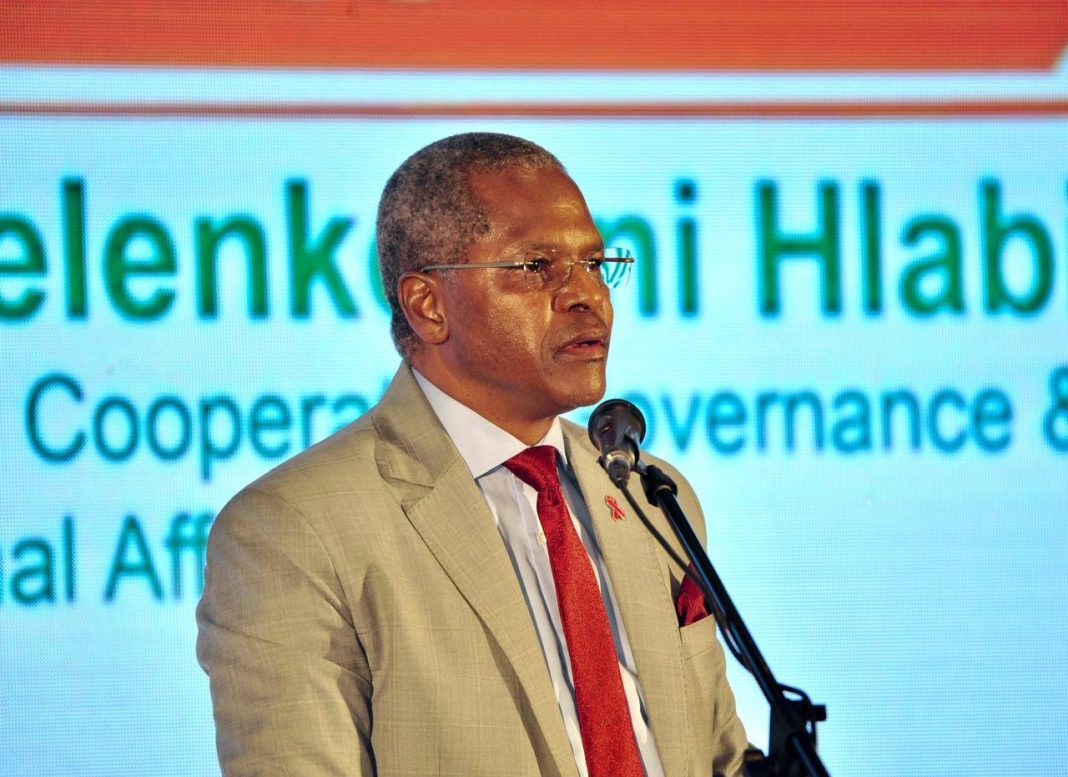The review of the country’s White Paper on Local Government could result in a reduction of the country’s 257 municipalities, considering many are no longer economically viable.
Cooperative Governance and Traditional Affairs (COGTA) Minister, Velenkosini Hlabisa, said this was one of the proposals the Department was looking into as it reviews the white paper on local government of 1998.
Hlabisa was speaking at the launch of the Review of the White Paper on Local Government during a high-level meeting held at the Premier Hotel OR Tambo, Kempton Park, Ekurhuleni.
The launch represents a pivotal step in reimagining South Africa’s local government framework, underscored by the Minister’s rallying call: “Every Municipality Must Work.”
Calling for bold and innovative thinking at the launch of the review, Hlabisa posed critical questions about the current structure of local government.
“We currently have 257 municipalities. Some are financially unsustainable, lacking any revenue base—an outcome of legacy design flaws in our system. As we reshape local government to be fit-for-purpose, we must seriously consider whether maintaining non-viable municipalities is justifiable,” said Halbisa.
The White Paper on Local Government was adopted in 1998 and Hlabisa announced its review in July 2024.
Hlabisa said questions about whether municipalities can render services must also be answered.
Addressing the gathering, Hlabisa noted that the review process is both timely and urgent.
“Since the adoption of the original White Paper in 1998, South Africa has made significant strides, including improved access to basic services, the establishment of autonomous municipalities, and the strengthening of democratic participation,” Hlabisa said.
“However, numerous municipalities continue to grapple with systemic challenges such as service delivery failures, fiscal mismanagement, and governance breakdowns.”
Hlabisa emphasised the importance of confronting these challenges directly.
“The harsh reality is that several municipalities are unable to repair potholes, ensure access to clean water, or provide reliable waste management. Others fail to utilize grants effectively. This is unacceptable, and the Review of the White Paper provides a blueprint for transformative change,” he said.
A Discussion Document, released on 10 April 2025, outlines nine policy priority areas for transformation, including financial reform, the depoliticisation of municipal administration, and the reduction of spatial inequality.
The public is invited to submit inputs on the Discussion Document by 30 June 2025, ensuring that all South Africans have a voice in shaping the future of local governance.
Hlabisa emphasised that this review is not merely a technical or policy-driven exercise, but a national imperative requiring active citizen engagement.
“The journey toward a more capable and responsive local government system is a collective responsibility. We call on all stakeholders—residents, councillors, municipal employees, business leaders, and traditional leaders—to partner with us in redesigning this vital sphere of governance,” said Hlabisa.
INSIDE METROS

